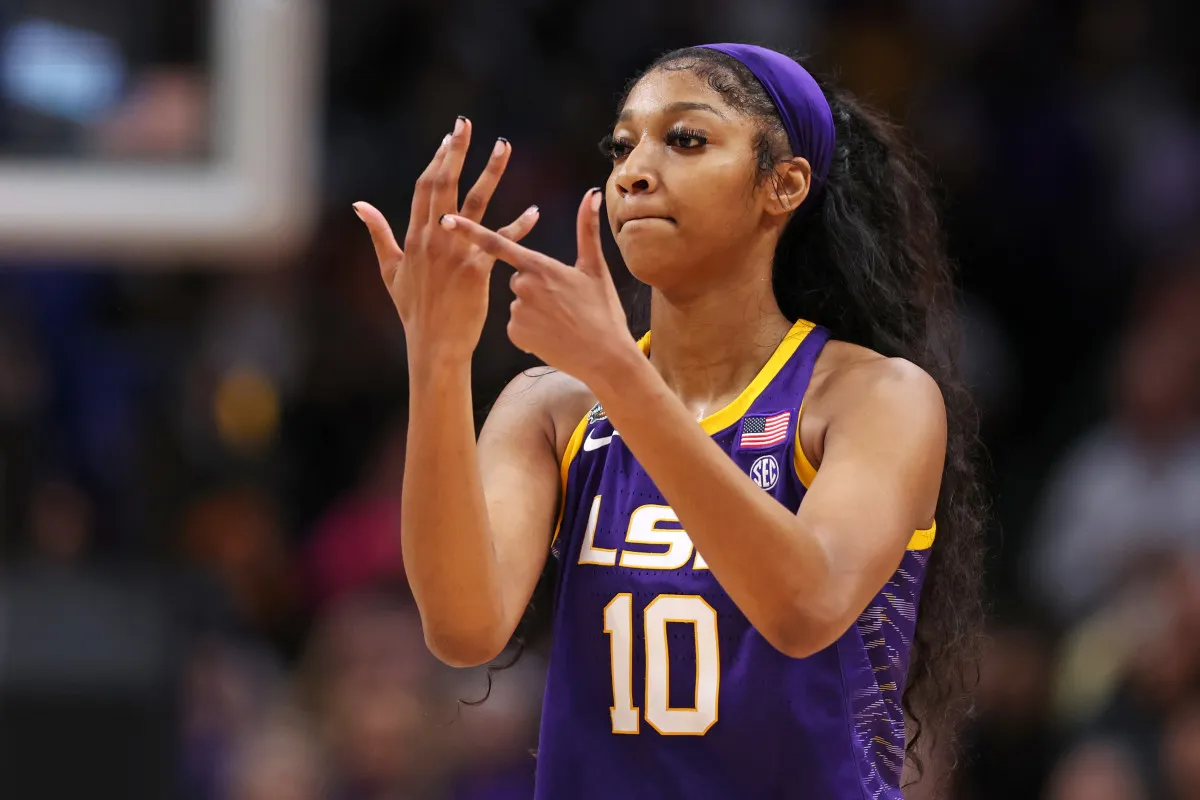LSU Women’s Basketball: From Villains to Victors in the Spotlight
In the electrifying world of women’s college basketball, the LSU Tigers have emerged as a powerhouse that refuses to be silenced by external criticism. Led by the indomitable Coach Kim Mulkey, the team has transformed from media-labeled “villains” to triumphant athletes who are rewriting the narrative of women’s sports.
The journey of the LSU women’s basketball team has been anything but ordinary. Angel Reese, the team’s dynamic star, has found herself at the center of a media storm that goes far beyond typical sports coverage. What began as on-court intensity has evolved into a powerful conversation about race, gender, and the double standards in athletic representation.
A controversial article in the Los Angeles Times sparked widespread outrage when it referred to the LSU players as “dirty debutantes” – a phrase that was quickly condemned as both racist and sexist. The article, written by Ben Bolch, became a lightning rod for discussions about media portrayal of Black women athletes.
“We’re not here to be liked. We’re here to be respected,” Reese has boldly stated, embodying the team’s defiant spirit.
The team’s dynamics are particularly noteworthy. Hailey Van Lith, a white teammate, has been vocal about the racial bias evident in media coverage. She highlighted the stark contrast in how Black and white players are perceived and judged, bringing important nuances to the forefront of the conversation.
Key aspects of the media controversy include:
- Disproportionate criticism of Black women athletes
- Unequal standards for on-court behavior
- Racial and gender-based stereotyping
- The team’s resilience in the face of negative portrayal
Coach Kim Mulkey has been a formidable defender of her team, challenging the narrative that seeks to diminish their achievements. Her unwavering support has been crucial in helping the players navigate the intense media scrutiny.
The impact of this controversy extends far beyond the basketball court. It has sparked critical conversations about representation, fairness, and the treatment of women athletes, particularly Black women, in sports media.
Notably, the team’s performance has been nothing short of spectacular. Their NCAA tournament game against Iowa drew an unprecedented 12 million viewers, demonstrating the growing popularity and significance of women’s basketball.
Despite being labeled as “villains,” the LSU team has embraced the narrative, turning criticism into motivation. They’ve shown that success is the ultimate response to negativity, proving that their skill, passion, and unity cannot be diminished by external judgments.
The broader implications of this story are profound. It’s not just about basketball; it’s about challenging systemic biases, demanding respect, and creating space for athletes to express themselves authentically.
As the dust settles, one thing becomes crystal clear: the LSU women’s basketball team is more than just a team. They are changemakers, role models, and powerful voices in the ongoing dialogue about equity in sports.
Their journey serves as a powerful reminder that true victory goes beyond the scoreboard – it’s about breaking barriers, challenging narratives, and inspiring future generations of athletes to stand tall and unapologetically.
In the end, the LSU Tigers have transformed from perceived villains to undeniable victors – not just in basketball, but in the fight for respect and recognition.






Leave a Comment